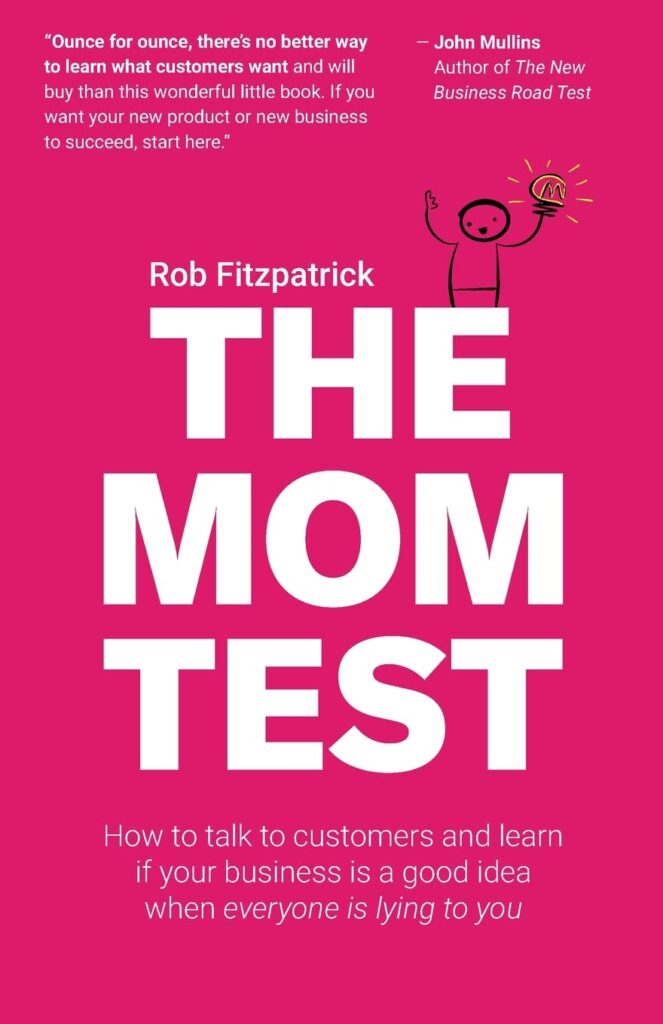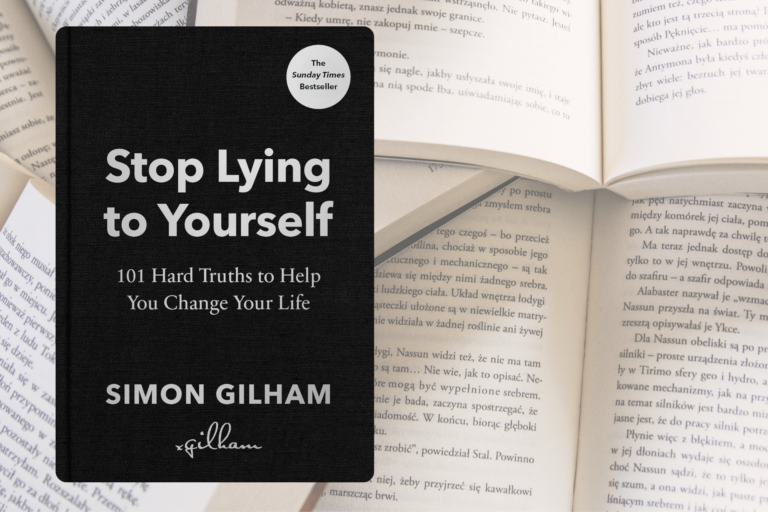As a founder, I’ve had my fair share of conversations with potential customers, investors, and advisors—only to realize later that some of their feedback was sugarcoated or, worse, completely misleading.
What’s worse?
The conversations with my friends and family led to pretty similar outcomes.
That’s why Rob Fitzpatrick’s The Mom Test hit so close to home.
It’s not just another book about customer discovery; it’s a practical guide on how to ask the right questions so you can get honest, actionable insights instead of polite lies.
The premise of the book is simple but powerful: people, especially friends and family, don’t want to hurt your feelings. If you ask them whether your startup idea sounds good, they’ll probably say yes—even if they’d never actually pay for it.
The “Mom Test” is about structuring your conversations so that you uncover real needs and pain points rather than fishing for compliments.
Takeaways from the Mom Test book
While there are so many lessons and examples to take home, here are the ones I’m carrying with me for the company I run:

Avoid Biased Questions
One of the biggest takeaways for me was learning how to avoid biased questions. I’ve definitely been guilty of leading people toward the answers I wanted to hear, whether by explaining my idea before getting their thoughts or asking questions like, “Would you use a tool that does X?”
Instead, Fitzpatrick suggests that entrepreneurs focus on past behavior—because people’s actions are far more reliable than their words. A better approach is asking, “Tell me about the last time you dealt with X problem,” and then digging deeper into how they solved it, what they didn’t like about their current solution, and what they’d be willing to pay for a better one.
PS. At my marketing agency, we often tell our clients to run with data and not assumptions – this speaks exactly the same.
Avoid Premature Pitching
Another game-changer was Fitzpatrick’s emphasis on avoiding premature pitching.
I’ve made the mistake of jumping into sales mode too early, only to have the conversation shut down or turn unproductive.
This book reinforced the idea that early-stage customer conversations should be about learning, not selling. The moment you start pitching, you lose the opportunity to hear unbiased feedback.
PS. This is something I have been asking my team to follow as well; always listen first and then talk and it’s not important to get straight to selling!
Focus on Learning, Not Selling
Another thing about The Mom Test is that it doesn’t just give theory—it’s packed with real-world examples of good and bad customer conversations.
Fitzpatrick also acknowledges that these discussions can feel awkward, especially when you have to push for specifics or challenge vague answers. But he provides a clear framework for making these conversations feel natural and productive.
Should you read this book?
Personally, I feel that the pandemic brought a lot of opportunities to the forefront professionally for everyone.
But the distance brought in a lot of awkwardness and not really knowing how to converse or validate the several ideas that the internet had to share about building those ‘six-figure businesses’.
So if you’re looking for a quick read that gives you a reality check as well, I totally recommend getting this book – The Mom Test.


